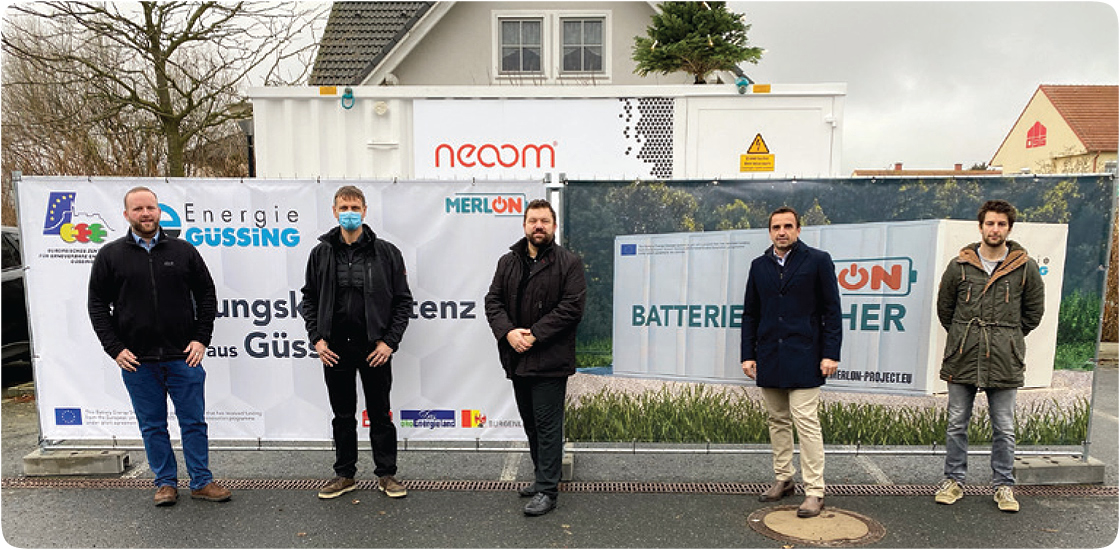Güssing, AT – since more than 20 years a small region in the southeast corner of Austria has taken a pioneering role in becoming an energy-self-sufficient ecosystem through an ambitious engagement in renewable energy production.
However, ever-growing shares of volatile and intermittent renewable energy from PV plants are stressing the electricity system and threaten the quality and reliability of power delivery. As a result, it becomes more diffi cult for new renewable generation plants to go on the line. In this rural region – which is representative of many other regions in Austria and the EU – the rather weak electrical network infrastructure is simply not designed to host large amounts of variable distributed generation infeed.
The H2020-project MERLON develops a promising ICT solution that not only increases the local hosting capacity of such areas but also formulates innovative network clusters that can operate both in islanded and in interconnected mode. A holistic modular energy management framework is developed, integrated and gradually deployed at two pilot sites, namely in Crevillent (ES) and in Strem (AT). From the beginning of 2019 a living lab has been established in Strem with households and local business stakeholders participating in demand-response and district-level flexibility optimisation framework. In the pilot buildings with residential and commercial use, the electricity-powered heating/cooling systems are monitored and remotely controlled to provide the essential flexibility to the grid without hampering the user's comfort and considering various contextual information
In addition to the flexibility resources on building level, various existing distributed energy resources on demand and generation side (EV chargers, PV plants, etc.) have been integrated in the MERLON framework together with a large-scale battery energy storage system of 250 kW / 250 kWh. The battery is equipped with MERLON smart management module enabling it to act as the main buffer for flexibility within this energy ecosystem. Finally, a blockchain-enabled flexibility marketplace has been launched in an attempt to establish a market-based approach in the flexibility transactions within the integrated local energy system.
Overall, the MERLON solution offers a set of stand-alone modules and tools for DSOs, Aggregators or other stakeholders of energy communities.
These include confi guration of virtual power plants, building-level and EV flexibility management, district flexibility forecasting-segmentation and aggregation, and more. At the same time, the modular structure of the framework makes it applicable in different environments and energy ecosystems.
The results of the project activities in Austria and Spain will be demonstrated until the end of the year. In both pilot sites the testbeds are already established, the demonstration scenarios are defined, and the communities have been guided and prepared for the final testing and evaluation phase of the project. During the following months, the validation procedure will deliver the insights and results to refine the MERLON products and provide a market-ready solution for DSOs and Aggregators in the EU at the beginning of 2022.

This project has received funding from the European Union's Horzon 2020 research and innovation programme under grant agreement No 824386.